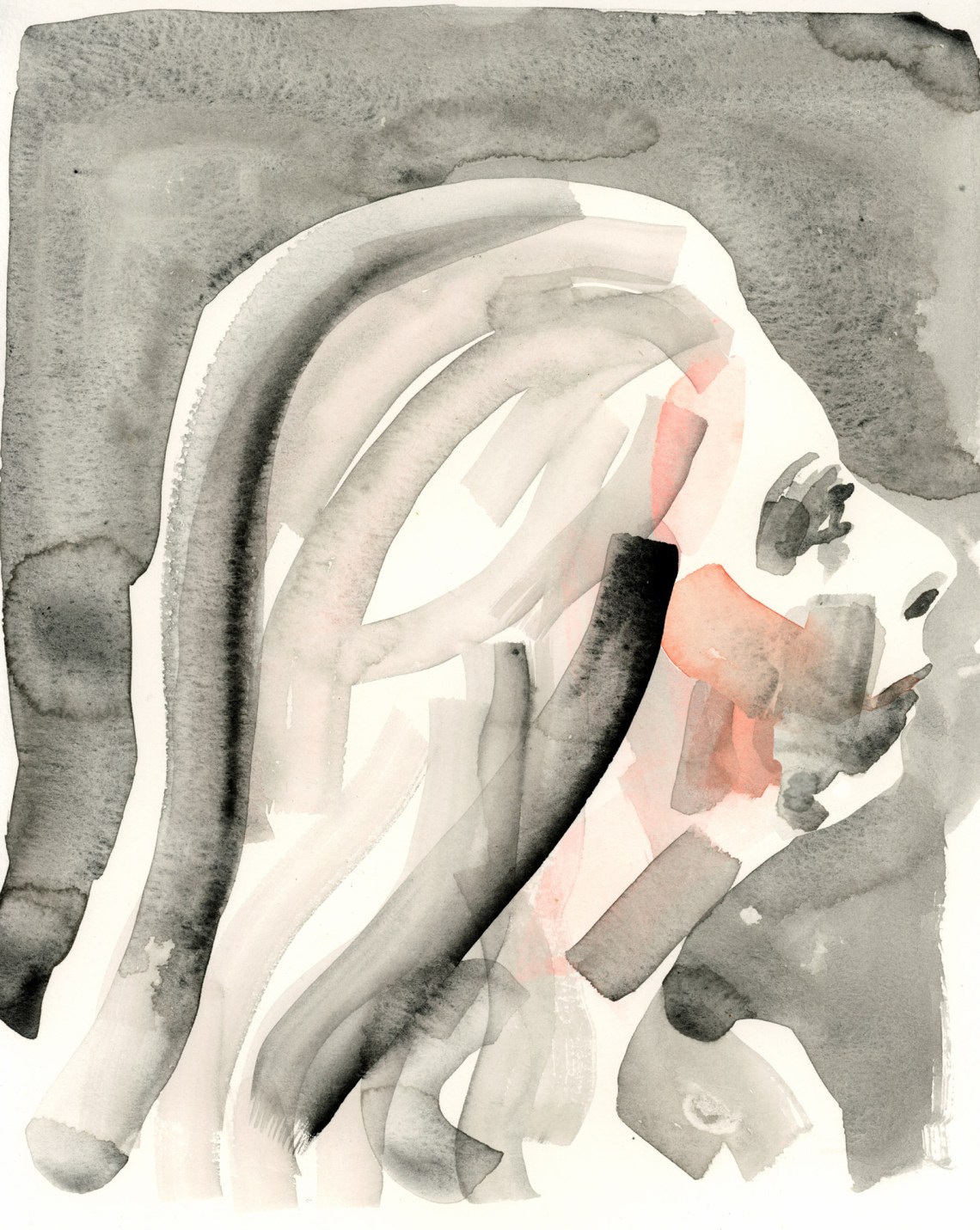When Hilary Mantel died suddenly of a stroke on September 22, one of the most distinctive voices in fiction fell silent. Here is Thomas Cromwell in Wolf Hall (2009), peering at the baby who will grow up to be Elizabeth I:
Ginger bristles poke from beneath her cap, and her eyes are vigilant; he has never seen an infant in the crib look so ready to take offence.
Here is the Champ-de-Mars in A Place of Greater Safety (1992), set during the French Revolution: parasols, sticky-fingered children, people clutching coconuts, then
blood blossoming horribly on the grass, fingers under stampeding feet, the splinter of hoof on bone. It is over within minutes. An example has been made. A soldier slides from his saddle and vomits.
Here is Morris, the smelly spirit guide in Beyond Black (2005), in Puckish mode:
“Ho,” said Morris, “you don’t frighten me, gel, if you go and work in the chemist I shall make myself into a pill. If you get a job in a cake shop I will roll myself into a Swiss roll and spill out jam at inopportune moments. If you try scrubbing floors, I will rise up splosh! out of your bucket in a burst of black water, causing you to get the sack.”
And here is the four-year-old Mantel herself (“Our Ilary”) in her memoir Giving Up the Ghost (2003), in the Derbyshire town of Glossop in the 1950s:
At no. 56, only my grandfather occupied an armchair, his cigarette between his fingers, his brass ashtray balanced on the chair arm. Women didn’t take their ease; when young, I thought, they ran about, and when old, they perched on upright chairs until they died, simply slumping to the linoleum, knocking their heads on the fireplace, and waiting to be carried away to the undertaker, Mr Worsley, who buried Catholics. Maggie, Annie Connor’s daughter, was neither old nor young. She never sat down. Neither did my mother, nor my cousin Beryl. My grandmother was so creased by anxiety that her face resembled a pleated skirt.
It feels artless, but oh, how skillful. Even the pleated skirt is absolutely true to period.
Mantel’s exuberant writing worked in multiple dimensions. It could carry the weight of a physical moment or the tone of a real person, while simultaneously evoking the social world, with all its battles for power, and hinting at a realm of spirit, story, and belief that lurked beyond. She was deftly experimental, trying different genres, moving between settings, darting across time, from Tudor England to modern Britain. “What is time, anyway?” wonders the young nun Philomena in Fludd (1989), faced with baffled schoolchildren. “‘It’s to do with Greenwich,’ she said. ‘All would be well if you were right by Greenwich.’” In Mantel’s novels time turns back on itself; the present is haunted both by the past and the possible future.
Mantel grasped the future when she passed the exam for grammar school at eleven: “Passed. So I can have a life, I thought.” She went on from convent school to study law at Sheffield University and on graduating in 1973 married Gerald McEwen, whose work as a geologist took them to Botswana and Saudi Arabia. Over those years she had many jobs, from sales assistant in a department store to teacher and social worker. But always she was a writer. In addition to the Cromwell trilogy that made her famous, she published nine novels and two short-story collections, the last of which was The Assassination of Margaret Thatcher (2014), with its provocative title story. She was the first female author to win the Booker Prize twice, for Wolf Hall in 2009 and Bring Up the Bodies in 2012 (the third book in the trilogy, The Mirror and the Light (2020), was on the longlist), and was awarded the David Cohen Prize for Literature in 2013 in recognition of an entire body of work. She was also a critic, reviewer, and travel writer, a diligent committee member for the Royal Society of Literature and the Society of Authors, and a generous supporter of younger writers. She was made a Dame in 2014.
When fame came with the publication of Wolf Hall, she thoroughly enjoyed it, delighted to see the novel serialized on television and loving every minute of working on the stage version for the Royal Shakespeare Company. It had been a long journey. In 1974 she had dropped plans to become a barrister and begun work on A Place of Greater Safety. Finding no publisher, she put the manuscript aside. It would not be published for almost twenty years, but today readers cite it as their favorite. She aimed, she said in a prefatory note, at “a book that one can live and think inside.” It proclaims the same kind of “truth” that she achieved in Wolf Hall. The historical record, she held, can tell us what people do, but not what they feel and think—only fiction can imagine the interior drama of characters’ lives.
Advertisement
Having abandoned revolutionary Paris, Mantel turned, with “a cunning plan,” as she put it, to suburban England. From the start, banal and bizarre overlapped. Every Day Is Mother’s Day (1985) pitted social workers against the mad medium Evelyn Axon and her demonic daughter Muriel, who would make a vengeful return in the sequel, Vacant Possession (1986). In Eight Months on Ghazzah Street (1988), drawing on her four years in Saudi Arabia, Mantel conjured the desperate claustrophobia of being confined in an apartment in a country where women aren’t allowed to drive or walk alone.
She had no time for religious diktats, whether those of Islam or of the Catholicism of her childhood. But she had compassion, and she understood the need to believe. In the small northern community in Fludd, Father Angwin is losing faith in God, if not in the Devil, while Mother Perpetua rules the convent like a brutal dictator. Then, with the advent of the new curate Fludd, an alchemist of souls, all is mysteriously transformed. In her note about “the real Fludd,” an alchemist of the early seventeenth century, Mantel writes, “In alchemy, everything has a literal and factual description, and in addition a description that is symbolic and fantastical.” The same could be said of her own fiction. Fludd shows that prejudice, bigotry, and spite can be overturned. Yet pure evil is hard to eradicate, a stubborn stain. Violence and death are always present; in almost all Mantel’s tales someone is killed. And the body is not safe, even after death. In The Giant, O’Brien (1998) she played off the story of the great Irish giant and his flow of fairy tales against that of the famous eighteenth-century anatomist John Hunter, who yearns to dissect the giant’s corpse: there is no doubt, in her telling, who is the monster, the freak.
Mantel was wary of doctors. She understood pain. For many years she suffered from endometriosis, humiliated by doctors who dismissed her agony as psychosomatic or prescribed “cures” that turned her from wraith to balloon: she “accumulated an anger that would rip the roof off.” She wrote furiously about the way people—especially women—are judged by appearance and punish their bodies. (“Saints starve,” she wrote in her memoir. “They diet till they see visions…. There are no fat saints.”) In 2013 she caused a controversy when she described Kate Middleton as a “jointed doll” designed by a committee, “with a perfect plastic smile,” comparing her to Diana, who induced “a sort of licentiousness…a national lip-smacking,” and to Marie Antoinette and Anne Boleyn, long dead but still victims of prurient nosiness. To be female and royal is to be a double loser, a sacrificial star.
Mantel’s sympathy for the frailty of the flesh was matched by her feeling for the evanescence of self—gone in a puff or dispatched with the blow of an axe. Her fiction crossed thresholds, showed life as limbo, with a door left ajar. Ghosts remained important, becoming disconcertingly alive in the savagely funny Beyond Black. In the first of her Reith Lectures for the BBC in 2017, she explained that her concern was with “memory, personal and collective: with the restless dead asserting their claims.” They assert their claims in Wolf Hall, yet paradoxically her Tudor novels were a return to realism, a solid shore. In a New Yorker profile in 2012 she said, “It began to unscroll before me like a film…. It was as if after swimming and swimming you’ve suddenly found your feet on ground that’s firm. I knew from the first paragraph that this was going to be the best thing I’d ever done.” It was also a canny practical decision to step away from the “odd and the marginal”: her readers, she said in her Reith Lectures, were “a small and select band” until she decided “to march on to the middle ground of English history and plant a flag.”
In Giving Up the Ghost, writing of her childlessness, which sometimes made her sad, Mantel segued into the subject of writing: “But time goes on, you think of more and more books you should have written, stories half-fledged and left in the file called ‘Work in Progress.’ I know some of these narratives will never be finished.”
Sadly, now, that’s true.




